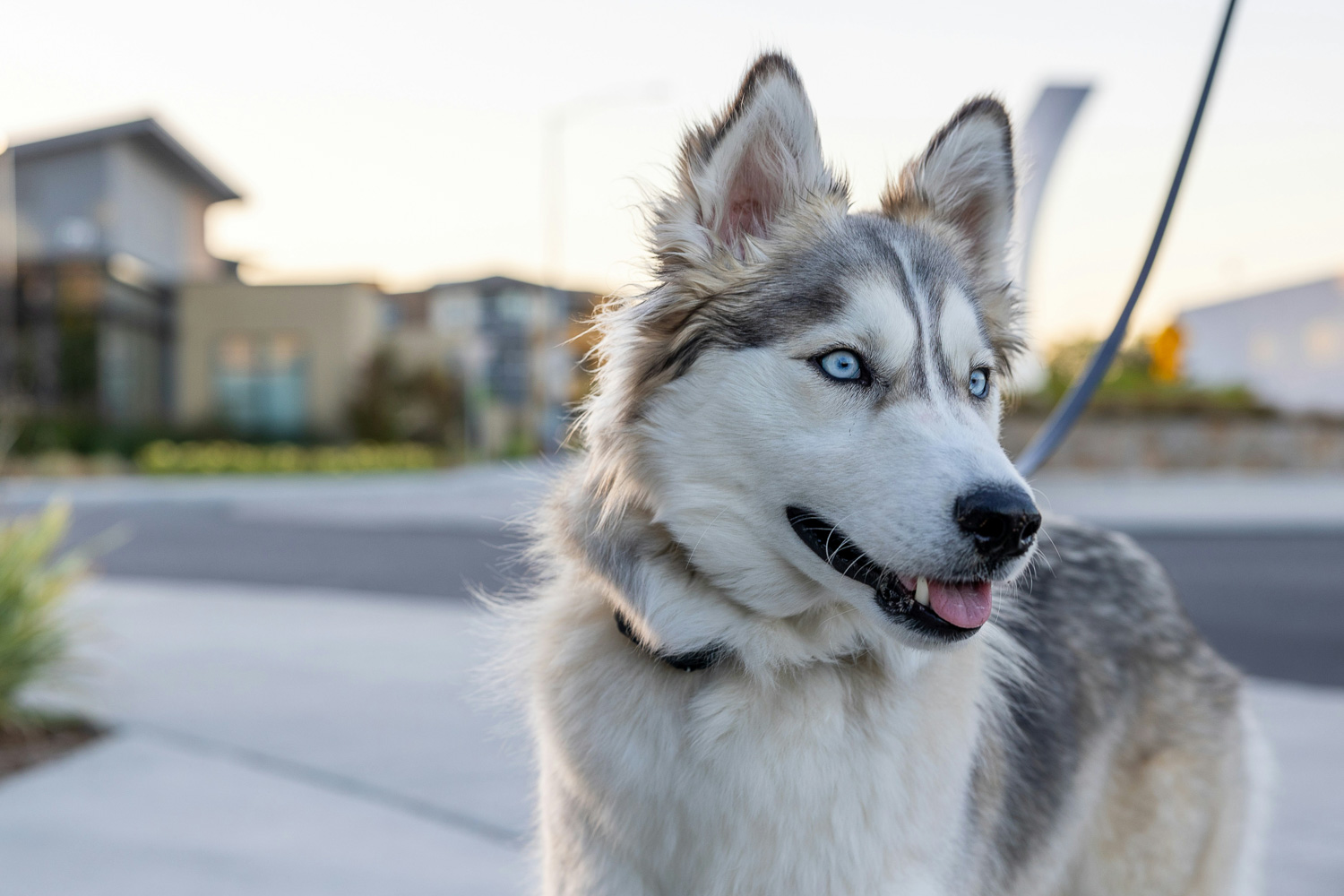The Siberian Husky is a breed that captivates with its striking appearance and vibrant personality. Known for their wolf-like looks and piercing blue eyes, Huskies are more than just their beautiful exterior. Let’s delve into the various traits that define a Husky, based on insights from the American Kennel Club.
Affectionate with Family
Huskies are known for their independent nature but also have a lovey-dovey side. They form strong bonds with their family members and show affection generously. While they might not be as clingy as some other breeds, they appreciate and enjoy family time, often treating everyone they know as their best friend.
Good with Young Children
Huskies have a moderate level of tolerance and patience with children. While they can be good with kids, it’s essential to supervise interactions to ensure safety and positive experiences. Their playful nature can be a great match for older children who can handle a dog’s energetic playstyle.
Good with Other Dogs
Generally, Huskies are friendly towards other dogs. However, like all breeds, it’s crucial to supervise their interactions, especially during introductions. Their sociable nature means they often get along well with other dogs, making them a good fit for multi-dog households.
Shedding Level
If you plan to bring a Husky into your home, be prepared for some serious shedding. Huskies have a double coat that sheds significantly, especially during seasonal changes. Regular brushing is necessary to manage the fur and keep your home relatively hair-free.
Coat Grooming Frequency
Huskies require regular grooming, though not excessively so. A good brushing a few times a week is usually sufficient to keep their coat healthy and reduce shedding. Bathing should be done as needed, but not too frequently, to avoid stripping the natural oils from their skin.
Drooling Level
Huskies are not particularly drool-prone, which is a bonus for those who prefer a cleaner pet. You won’t need to keep a towel handy to wipe up drool spots, making them a relatively tidy breed in this aspect.
Coat Type and Length
Huskies have a double coat that is dense and can be either medium or long in length. This coat is designed to keep them warm in cold climates, reflecting their origins as sled dogs in Siberia. The coat requires regular maintenance to keep it free from mats and tangles.
Openness to Strangers
Huskies are generally welcoming towards strangers. They tend to be friendly and curious, often treating new people as potential friends rather than threats. This trait makes them less suitable as guard dogs but excellent companions for sociable families.
Playfulness Level
Huskies are incredibly playful and remain so well into adulthood. They enjoy engaging in various activities, from tug-of-war to fetch, and their playful demeanor can provide endless entertainment for their families.
Watchdog/Protective Nature
While Huskies are vigilant and will alert you to new things in their environment, they are not overly protective. They are more likely to greet strangers with enthusiasm than with suspicion, making them better suited to companionship than guarding.
Adaptability Level
Huskies are highly adaptable and can adjust to various living conditions, though they thrive best in cooler climates. They can handle changes in their routine and environment fairly well, provided they receive adequate exercise and mental stimulation.
Trainability Level
Huskies are known for being self-willed and independent. Training a Husky requires patience, consistency, and a firm yet gentle approach. They are intelligent and capable of learning, but they often prefer to do things on their terms.
Energy Level
Huskies are high-energy dogs that require plenty of exercise to stay happy and healthy. They love running, playing, and engaging in physical activities. Without enough exercise, they can become bored and potentially destructive.
Barking Level
Huskies are known to be very vocal. They use a variety of sounds to communicate, including howls, barks, and even “talking.” This vocal nature is something to consider if you live in a noise-sensitive environment.
Mental Stimulation Needs
Huskies need a good deal of mental stimulation. Bred to work and think independently, they thrive on activities that challenge their mind. Without enough mental engagement, they may resort to creating their own entertainment, which can sometimes be problematic.
Conclusion
Bringing a Husky into your home means welcoming an affectionate, playful, and energetic companion. They require a fair amount of grooming and exercise, and their independent nature can make training a challenge. However, with the right care and attention, a Husky can be a loyal and loving addition to your family.
Source and Recommended Reading: Siberian Husky, American Kennel Club


Leave a Reply